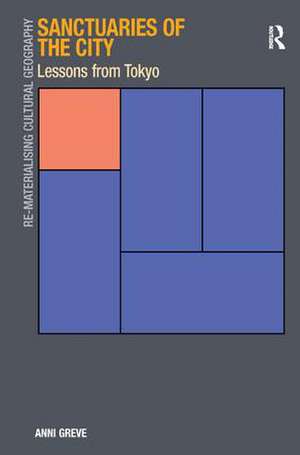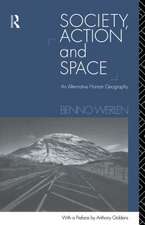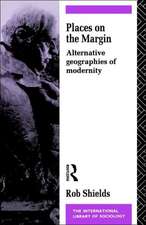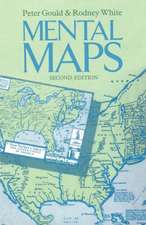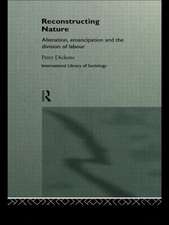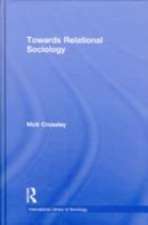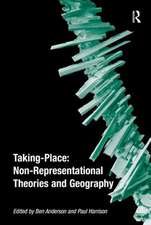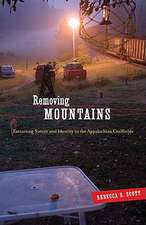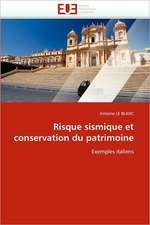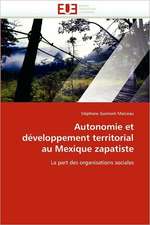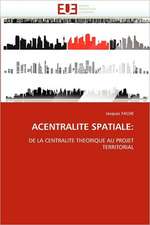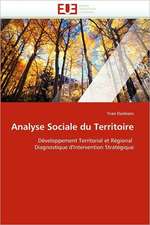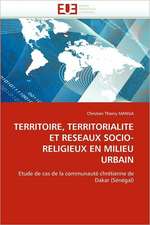Sanctuaries of the City: Lessons from Tokyo
Autor Anni Greveen Limba Engleză Hardback – 28 sep 2011
| Toate formatele și edițiile | Preț | Express |
|---|---|---|
| Paperback (1) | 337.42 lei 6-8 săpt. | |
| Taylor & Francis – 16 noi 2016 | 337.42 lei 6-8 săpt. | |
| Hardback (1) | 821.94 lei 6-8 săpt. | |
| Taylor & Francis – 28 sep 2011 | 821.94 lei 6-8 săpt. |
Preț: 821.94 lei
Preț vechi: 1103.96 lei
-26% Nou
Puncte Express: 1233
Preț estimativ în valută:
157.30€ • 164.01$ • 130.73£
157.30€ • 164.01$ • 130.73£
Carte tipărită la comandă
Livrare economică 21 martie-04 aprilie
Preluare comenzi: 021 569.72.76
Specificații
ISBN-13: 9780754677642
ISBN-10: 0754677648
Pagini: 220
Dimensiuni: 156 x 234 mm
Greutate: 0.57 kg
Ediția:1
Editura: Taylor & Francis
Colecția Routledge
Locul publicării:Oxford, United Kingdom
ISBN-10: 0754677648
Pagini: 220
Dimensiuni: 156 x 234 mm
Greutate: 0.57 kg
Ediția:1
Editura: Taylor & Francis
Colecția Routledge
Locul publicării:Oxford, United Kingdom
Notă biografică
Anni Greve, Associate Professor of Sociology at the Department of Society and Globalisation, Roskilde University, Denmark
Recenzii
'In this truly great book, Anni Greve explores the various sanctuaries in Tokyo, London and New York where we can practice cosmopolitan virtues and cultivate conviviality. Combining sociology, history and architecture, she uncovers how they offer intimacy and spirituality within the secular city. In doing so, she constructs a remarkable vision of a new urban sensibility.' Bryan Turner,City University of New York, USA 'The ability to socialize with strangers with civilty and hospitability is the central concern of this book. The sanctuaries of Japan’s Edo period are seen as central places for the cultivation of this ethic and aesthetic, and their survival or reinvention are crucial to living in our modern urbanized world. From this point of departure, Anni Greve throws fresh and eye-opening light on such issues as architecture, space, temples, markets, theatricality, rituals and performing arts. The author combines her insight into Japanese culture with an admirably broad knowledge of Western and Japanese scholarship.An impressive and thought-provoking contribution to cosmopolitan studies.' Henning Bech, University of Copenhagen, Denmark 'Developing the methodology of urban Sanctuary Research Anni Greve breaks new ground in the field of urban sociology, social theory and Durkheim's social theory in particular. That the quality of life in the contemporary world-cities depends on the quality of urban sanctuaries is an idea full of potential further developments. Greve shows how Emile Durkheim is still a valuable companion on the journey in the global world.' Massimo Rosati, Università degli Studi Roma 'Tor Vergata', Italy 'In Sanctuaries of the City, Professor Greve has created a masterful synthesis of key works in social theory and cultural anthropology in order to unfold the profound essence of Tokyo, Japan, one of the greatest and most livable cities on the planet. She ranges widely to address architecture, social space, religious practice, and the arts, among
Cuprins
prelude Positioning; Chapter 1 Sanctuaries of the City, Lessons from Tokyo; Part I Urban Sanctuary-Research; Chapter 2 1 is a slightly reversed version of the essay ‘Civic cohesion and sanctuaries for coming to terms with modernity’, published in Durkheimian Studies, Volume 12, Number 1, November 2006, pp. 68–89(22). In this initial essay, civic cohesion was at centre of the argument. It has now been replaced by ‘an international culture as emergent reality’, for two reasons. First, it is through the work of Daniel that I have become aware of Durkheim’s engagement with cosmopolitan virtues. Unfortunately the concept of civic cohesion connotes the organic city idea of the Chicago school, which is very much located within the framework of national sociologies. But also my empirical field of study – a vibrant East Asian urban society – enforces a displacement of focus beyond the level of the nation state. From this point, the late Durkheim, in his study on religion, offers an important source of inspiration; Chapter 3 Urban Sanctuary-Research; Chapter 4 Sanctuaries of Urban Virtues, a View from Architecture; Part II A Place-Historical Perspective; Chapter 5 Reconsidering Classical Sociology: In Search of an In Between Realm of Urban Society; Chapter 6 Approaching the Orient; Chapter 7 The Jolly Good Market Place; Chapter 8 Sanctuaries for Performing Arts; Chapter 9 The Sacred Sanctuary; Part III Lessons From Tokyo; Chapter 10 Lessons from Tokyo; Postlude Postlude;
Descriere
This book proposes that we can learn from Tokyo about the instrinsic importance of in-between realms to an international culture: the sanctuaries. It argues that certain urban societies are more robust than others because they offer socio-spatial capacities that enable the development of skills for coping with modern forms of living. It studies places that may open the way to an international culture, namely market places, venues for performing arts and religious sites, , which - with particular reference to the Durkheimian tradition - are considered here in their quality as sanctuaries.
